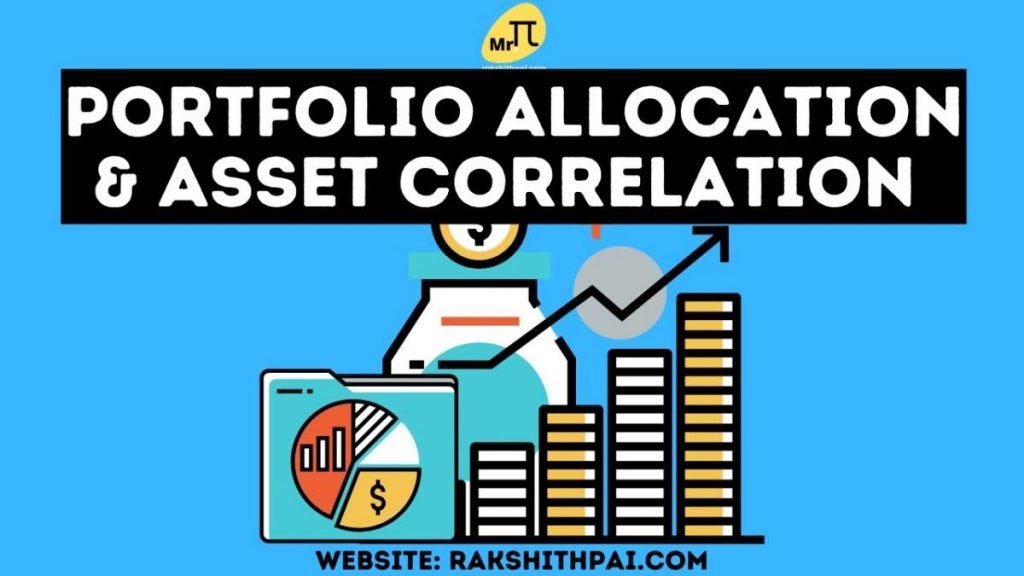Table of Contents
What are Fixed Income Investments?
Fixed-income investments are those that pay investors a fixed rate of interest or dividends until the instrument matures. Since the Fixed Income Instruments do not provide Capital appreciation. Investors are reimbursed for the principal amount invested at maturity.
For example; Fixed deposits (FDs), Corporate & Government Bonds, Provident Funds, etc.
Fixed-income instruments are financial securities that provide guaranteed returns while also protecting the investor’s cash. They are immune to market fluctuations and provide a set rate of interest for the duration of the investment.
If your risk tolerance is moderate or low, you can use a fixed-income instrument to grow your financial corpus for various life goals. The following are some of the many fixed-income strategies that you might consider investing in and including in your portfolio.
How Does Fixed Income Work?
The word “fixed income” refers to the interest payments received by an investor, which are determined by the borrower’s creditworthiness and current interest rates. In general, the longer the maturity of fixed-income products such as bonds, the greater the interest rate, referred to as the coupon. But, in some cases, the short-term maturity bonds are valued high over the longer-term bonds.
The borrower is willing to pay a higher interest rate in exchange for the ability to borrow money for an extended period of time. At the end of the term or maturity of the security, the borrower pays back the money they borrowed, which is called the principal or “par value.”
Most Known Fixed Income Securities:
Corporate & Government Bonds
A bond is a kind of debt security. Like an IOU, borrowers offer bonds to investors who are ready to lend them money for a set period of time. When you invest in a bond issued by a government, municipality, or company, you are extending financial support to the issuer in exchange for a charge for service called interest on bonds.
Bonds constitute a whole field of financial or investment products in and of themselves. They can be broadly characterized as loans made by investors to an issuer with the promise of repayment of the principal amount at the specified maturity date, as well as periodic coupon payments (usually every six months) representing interest on the loan.
The purpose of these loans varies considerably. Typically, bonds are issued by governments or companies seeking to finance projects or operations.
Money Market Instruments
These instruments are often traded on organized markets at a discount from face value, with the amount of the discount being a function of the interest rate and the length of time until maturity. The owner of a money market instrument has the absolute right to receive a predetermined amount of money on a predetermined date.
Commercial paper, banker’s acceptances, certificates of deposit (CD), and repurchase agreements (“repo”) are all examples of money market products. Treasury bills are legally included in this category, but owing to the huge amount of trading they see, they have a life of their own.
Treasury Bills
Treasury bills, often regarded as the safest short-term financial instrument, are issued by the country’s federal government. These securities often have maturities of 28, 91, or 182 days (one month, three months, or six months). These instruments do not have a fixed coupon or interest rate.
They are sold at a discount to their face value, the difference between the face value and the discounted value is the interest rate they give investors. As a basic example, if a Treasury note with a face value of Rs.100, or par value, sells for Rs.90, it offers about 10% interest.
Asset Securities Backed (ABS)
Asset-backed Securities (ABS) are debt instruments backed by “securitized” financial assets such as credit card receivables, auto loans, or home equity loans.
An ABS is a collection of such assets bundled into a single fixed-income instrument. Asset-backed securities are frequently preferred by investors over corporate debt.

Features of Fixed Income Investments:
- They offer low-risk, low-return type investments.
- Insurance for difficult times. They provide safety as you can take a loan against these instruments during Unfortunate times.
- A passive source for a regular stream of income.
- Tax Benefits.
- Flexible tenures with optimum options for liquidity.
Why Fixed Income Instruments are favored amongst Indians?
Most Indians especially those born before the 1980s do not view the Stock Market as the Millennials do. Millennials prefer to take risks and be more adventurous. Hence, nowadays we see many in India coming into the Stock Market, some even going into other risky assets such as Crypto. But, the non-millennials prefer Safety over Better returns.
Thus, until now, most Indians park their savings under various Fixed Income Investments.
But, these Fixed income instruments aren’t safe in ways that truly matter. I mean, in the eyes of Inflating money circulation, and the aftermath depreciation of purchasing power. The Fixed Income instruments lack to entice the new generational investors.
Risks involved in Fixed Income Instruments:
The primary risk associated with fixed-income securities is that the borrower will default on their obligation. Such risks are reflected in the interest or coupon rate offered by the asset, with securities having a higher risk of default providing investors with higher interest rates.
Additionally, Fixed Income Instruments include exchange rate risk for assets denominated in a currency other than the US dollar (for example, foreign government bonds) and interest rate risk, which is the risk that interest rate fluctuations would affect the market value of a fixed-income security an investor owns.
For instance, if an investor owns a 10-year bond paying 3% interest and interest rates rise and new 10-year bonds are released paying 4% interest, the investor’s bond paying 3% interest becomes less valuable.
Coupon Rate Unchanged
Fixed income instruments as the name suggests, are Instruments providing fixed rates of income to investors. This becomes a hassle when the interest rates rise and you are locked in your investment with lower rates.
For example, right now FD offers 6 to 6.5%, if you subscribe to FD now and in the coming 2 years as the interest rates rise, you are at a disadvantage for you are holding an instrument with reduced rates.
Liquidity Issues
Although Fixed Instruments provide optimum liquidity, they are not the most feasible option when in need. Because pulling out funds from these investments as and when needed can attract penalties. We call it the Premature withdrawal penalty.
Inflation Worries
This is probably the most important risk. The one that’s not vividly known amongst investors. Imagine owning a Fixed Income instrument that gives a 6% return on investment and no capital appreciation.
With inflation averaging at 4 to 6% each year, your investment on the net affects yields hardly 1 to 2% in this case.
What Should Investors Do?
Owing Fixed Income Instruments is suggested. But the same needs to be done due diligently. Invest in these assets not more than 15 to 20% of your portfolio or as per your financial condition & risk-averse behavior.
A conservative investor can own safe assets while risky investors can choose to limit owning Fixed income instruments and prefer owning risky assets such as Equity & Crypto.
That’s it about Fixed Income Instruments. Hope this video helps you in your future investment decisions.
Fixed Income Instruments During Recession:
During an economic slowdown, bonds are preferred over stock investing. The reason for this is the interest rate. When interest rates are hiked, the value of money, which was dormant until now (during the low-interest rate period), will become active. which means your money has more value than ever before.
Rising interest rates reduce the money supply’s circulation. As a result, the party offering you the bonds must pay you more than usual. As a result, bond investments will provide a higher interest yield.
Conclusion:
Fixed-income instruments, or fixed-income securities, are a type of investment that pays a fixed rate of interest and eventually refunds the primary investment bond’s money at the bond’s maturity. Fixed-income securities are financial products that pay investors a predetermined rate of interest in the form of coupon payments. Interest is normally paid semi-annually while the principal invested matures and is returned to the investor.
In contrast to other variable-income instruments, the payments on fixed-income options are known in advance. Fixed-income securities provide investors with a steady stream of periodic interest payments at a fixed rate (known as coupon payments).
Municipal bonds are the most frequently purchased fixed-income products and are available in the form of municipal bonds, government bonds, and corporate bonds. However, not all fixed-income investments are made equal.
Bonds are rated using a variety of characteristics, and these ratings can impact a bond’s viability. These factors include interest rate risk, credit risk linked to individual bonds, and the company that makes the bonds.
FAQs:
For More Information, Check this Video:
Disclaimer: All the information on this website is published in good faith and for general information purposes only.









